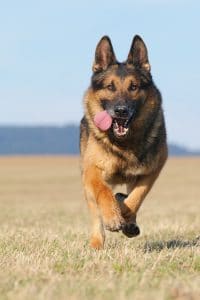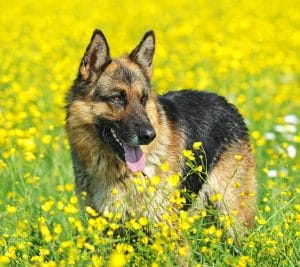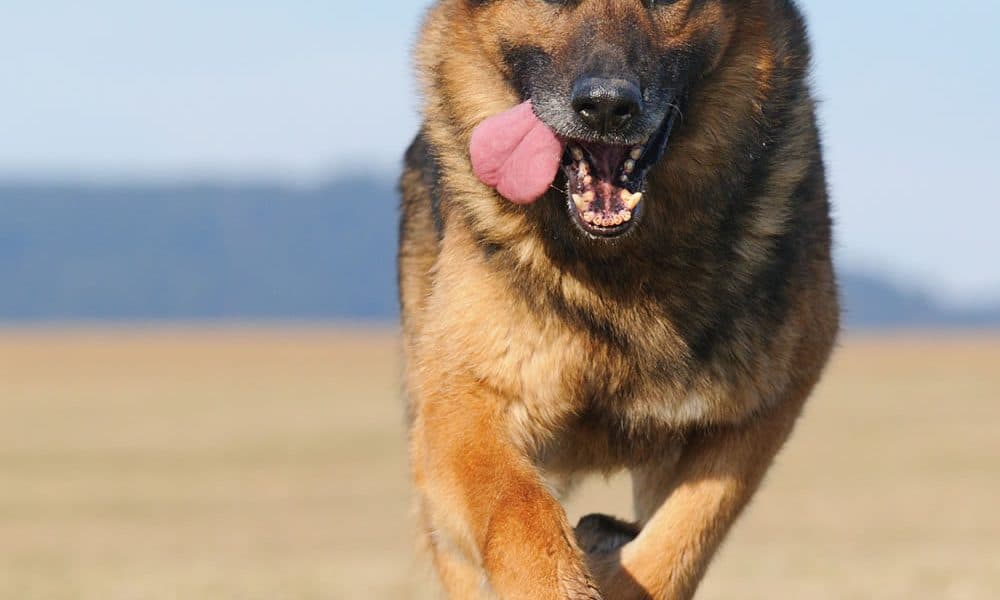 As its name suggests, the German Shepherd was first bred in Germany. The forefathers of this breed were working dogs that were bred selectively for their intelligence, agility and strength. These dogs resembled the modern German Shepherd, but varied from region to region. In 1899, a German man named Max von Stephanitz purchased one of these dogs. He created a society for German Shepherds and listed his dog as the first breed register.
As its name suggests, the German Shepherd was first bred in Germany. The forefathers of this breed were working dogs that were bred selectively for their intelligence, agility and strength. These dogs resembled the modern German Shepherd, but varied from region to region. In 1899, a German man named Max von Stephanitz purchased one of these dogs. He created a society for German Shepherds and listed his dog as the first breed register.
Dog actors like Rin Tin Tin caused German Shepherds to become popular around the world. World War I soldiers noted their usefulness on the battlefield, further heightening their popularity. This popularity declined shortly after World War II, but gradually began to rise again. Today this breed is the 4th most popular in the UK.
German Shepherds can be compared to today’s athletes: strong, solidly build, and giving a full bodied impression whether at rest or in movement. This breed is bred for its strength and speed, which is easy to see in the dog’s build. Their faces are very alert and express intelligence. They have a long muzzle and strong jaws. The ears are triangular and stand up straight at most times.
This breed has a double coat that sheds throughout the year. This coat can be medium or long in length, with medium being the most common. The colours of German Shepherds vary greatly, but most are tan and black or red and black. Some dogs show white coats, but this is considered a fault (a white guard dog wouldn’t be very good at hiding in the dark!)
German Shepherds are known for being very alert and intelligent. This intelligence makes for easy training in many cases. Because of this they are commonly used as police, rescue, and guard dogs. They are very loyal and will bond easily with their owner. However, in some cases this can lead to over-protectiveness. Naturally reserved with strangers, they are approachable but not necessarily friendly to people they don’t know. Because of their intelligence and active nature this dog needs extensive stimulation, this breed will not be happy lying around the house or pottering about in a back garden. German Shepherds also need very authoritative owners, who will deal with them in a calm, firm and consistent manner. They are strong willed dogs and will not listen if they sense weakness in their owner.
 Because of large amounts of inbreeding early on in the breed’s history, German Shepherds are susceptible to some common ailments. Among these problems are hip and elbow dysplasia, degenerative spinal stenosis and ear infections. As these problems become more and more common, the breed has been being used less and less in working positions.
Because of large amounts of inbreeding early on in the breed’s history, German Shepherds are susceptible to some common ailments. Among these problems are hip and elbow dysplasia, degenerative spinal stenosis and ear infections. As these problems become more and more common, the breed has been being used less and less in working positions.
Despite this recent trend, many German Shepherds have been utilised as working dogs. Because of their speed, strength, and sensitive noses they are often used to track criminals and find hidden drugs and explosives. The military finds this breed useful as well, often using them to scout for mines or traps. People with visual impairments have relied on the breed for years for guidance.


